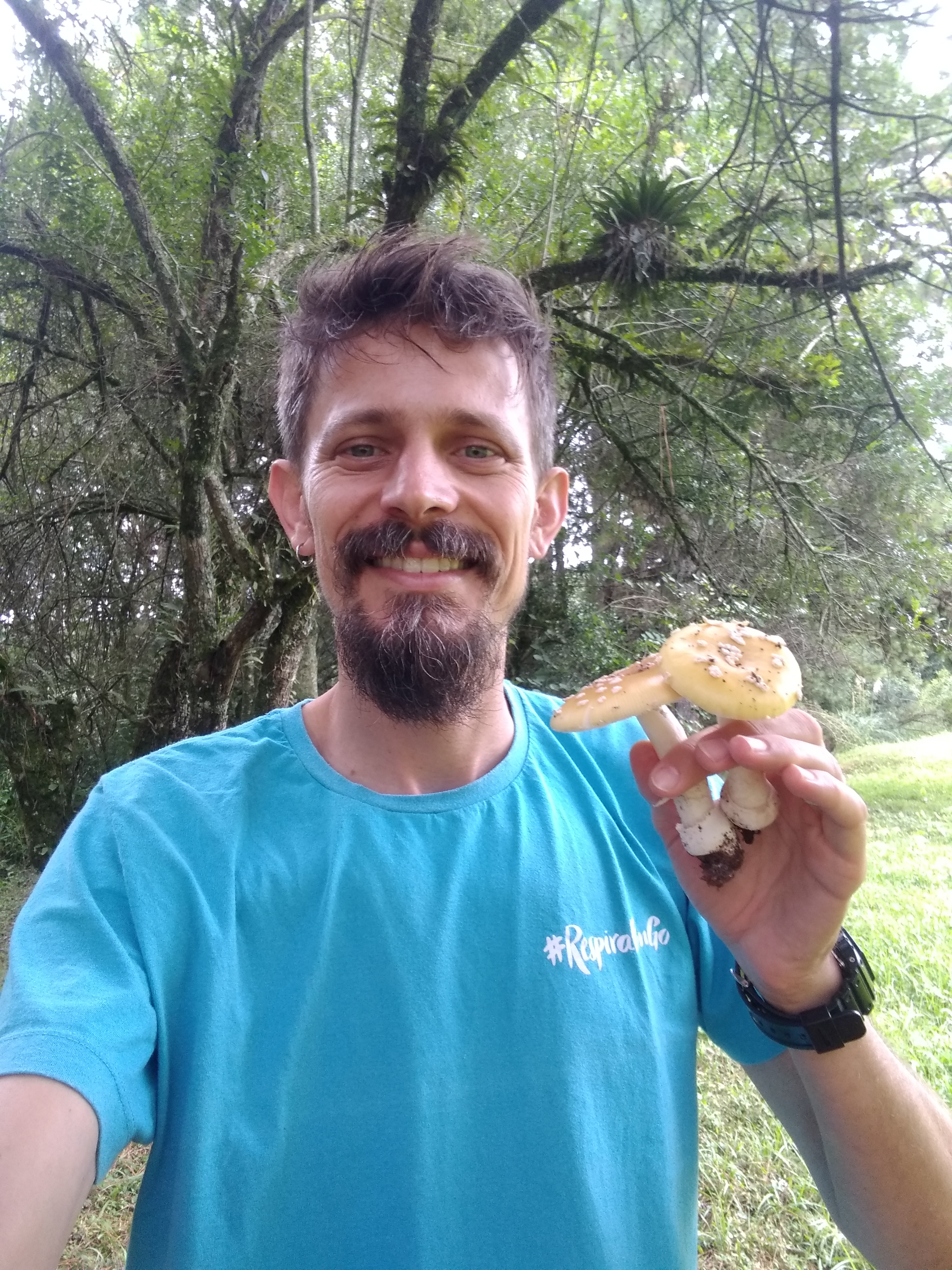Juliano Marcon Baltazar
 |
Juliano has a bachelor's degree in Biological Sciences from the Universidade Federal de Santa Catarina, a master's degree in Fungal Biology from the Universidade Federal de Pernambuco and a PhD in Botany from the Universidade Federal do Rio Grande do Sul. He completed a sandwich doctorate internship (PDSE/CAPES) at the Centro de Investigación y Extensión Forestal Andino Patagónico (Esquel, Argentina), under the supervision of Dr. Mario Rajchenberg. He was a substitute professor at the Universidade Estadual de Maringá. Since 2015, he has been a professor at the Universidade Federal de São Carlos (Campus Lagoa do Sino), where he teachs on the Bachelor's degree in Biological Sciences and in the PPG in Conservation and Sustainability. He was Coordinator and Substitute Coordinator of the Bachelor's Degree in Biological Sciences (on two occasions in each position), and was a member of the Council of the Centro de Ciências da Natureza, the Undergraduate Council and the University Council. He is currently a member of the Coordination Council and the Structuring Teaching Center of the Bachelor's Degree in Biological Sciences. It carries out research and extension in several areas, including systematics, taxonomy and conservation of macrofungi, ethnomycology, unconventional food fungi (acronym in Portuguese: FANCs), environmental education and scientific dissemination. He was coordinator of a CNPq Universal project (2017–2020), and currently participates in two BIOTA FAPESP projects, a CNPq Universal project and a project from the Mohamed bin Zayed Species Conservation Fund. E-mail: baltazar@ufscar.br ORCID: 0000-0002-9914-5108 (external link) CV: lattes.cnpq.br/8657253415860174 (external link) Research Area: Conservation Biology Research Group: dgp.cnpq.br/dgp/espelhogrupo/6835719314264281 (external link) / www.lemic.ufscar.br (external link) Expertise: Systematics and Taxonomy of Macrofungi; Conservation of Macrofungi; Ethnomycology; Unconventional Food Fungi (acronym In Portuguese: Fancs); Environmental Education and Scientific Dissemination. |